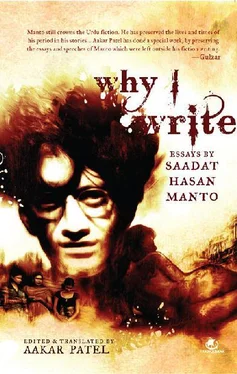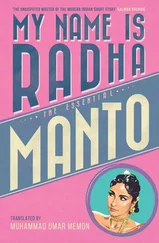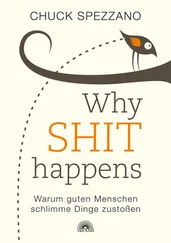In the office was a kindly old man and I confided in him, saying that I was about to bring my bride into a shell of a flat. He came to my aid and took me to a place that made and sold furniture, whose owner was a friend of his. I got some stuff on easy installments: two metal cots with springs, a cabinet for kitchen equipment and vessels, a dressing table (this was second-hand), a writing table and a chair.
When I installed all of this, I was disappointed. The rooms were as capacious as ships. They swallowed up the furniture. I bought two stools which I set up in the corners, but these too were lost. I got some more things from here and there and began to place them around the flat trying to convince myself (unsuccessfully) that it was now filled up.
And then the day arrived.
I was sitting that morning in the Musawwar office, and my mother was in the flat. I’d told her I was off to make arrangements for the function. Mr Nazir had sent off invites to people, many of whom were from the entertainment business. My baraat would be a filmi one. How appropriate.
There would be Mian Kardar, Director Gunjali, famous actors, A Billimoria and D Billimoria, Noor Mohammed “Charlie”, comedian Mirza Musharraf, Baburao Patel and the first colour film’s heroine, Padma Devi.
When Baburao learnt that only my mother would receive the guests at home, he sent Padma Devi to help out.
I had rented some chairs and from the Irani nearby came bottles of Vimto. I could easily cover the expense for these. What was bothering me, as I sat in the office of Musawwar , was how would I run the house from tomorrow?
Just then, the phone rang. It was my sister, who had been forbidden by her husband from meeting me and who couldn’t therefore be there when I would bring my bride home. ‘How are you, Saadat?’ she asked. I told her I was well and had four-and-a-half annas in my pocket. Four annas would buy me a tin of cigarettes and two paise would go for a box of matches. After that, who knew? She then said: ‘Please stop opposite my flat when you come to pick her up. I want to see you.’
I didn’t chat with her further, because she was becoming overly emotional. I hung up, rose and went to the saloon next door to get a haircut (on credit) and took a shower. By evening I had smoked my way through the tin of cigarettes. All I had in my pockets now — and remember I was just about to pick up my bride — was half a box of matches. Anyway, I changed into the suit gifted to me by my in-laws. I wore a tie too. When I looked into the mirror, a cartoonish character stared back. I laughed heartily.
Before the street lights were turned on, the baraatis were all present and ready. Padma Devi and Mother served them Vimto and were off. Our caravan of ten-fifteen cars wound its way to Mahim. I was in Nanubhai’s car and told the driver when we reached Jaffer House to drive on a little further up the road. My sister was waiting on the footpath. Tears were swimming in her eyes and she ran her hand over me with love and blessed me. I fled back into the car before it got too much and told the driver to back it up to Jaffer House.
There, my mother-in-law had done a superb job of setting up refreshments on the terrace. It was a raucous evening, as might be expected of film people, and Rafiq Ghaznavi, Director Nanda and Agha Khalish Kashmiri were at each other the entire evening. Everyone overate because the spread was absolutely delicious, as might be expected of us, Kashmiris.
Agha Saheb read out some verses from a poem he had written and then I was called downstairs and handed charge of the girl. It now felt like a dream.
Many thoughts, some long suppressed, were coursing through me. I held her hand and said, my voice trembling, ‘Let’s go, then.’
We came down. Billimoria gave us his car. My mother was with me and sat the bride down first. She sat next and then asked me to get in. Mother sat between my bride and me. On her lap, wrapped in muslin, was the Quran. Our necks were laden with garlands. As the car started, Mother began to mutter some verses. Till now I was to some extent, in control of my passions. I thought of playing some mischief with my wife, but mother was between us. And on top of that reciting from the holy book. My desire to torment my wife remained unfulfilled. I can’t remember how long it took for us to get home — or how we got there. Suddenly, we were there.
It was a building made more with stick than stone, but elegant in its time. Apparently it was once a grand hotel that His Highness, Sir Aga Khan had won from a friend as a bet.
Mother took my bride up to the flat. I stood there, thanking my friends for coming. Just then, Mirza Musharraf arrived with a truck which was carrying the bride’s dowry. A dining table and chairs came out, then a bed with springs, a sofa set, some trunks and so on.
After this was unloaded, Mirza Musharraf got into a squabble with the trucker over the fare. This went on for a long time. I waited.
Mirza Musharraf gave a display of why he played the buffoon with such ease on screen. After it ended and the stuff was placed here and there, wherever space could be found in the flat, Mirza Musharraf came to me and whispered: ‘Look boy, make sure you don’t embarrass us with your performance in bed.’
I was utterly spent by this time and gave no reply to the clown.
The next morning I rose to find that one quarter of me had magically turned husband. I was relieved to feel this way.
Out in the balcony, I saw a piece of string with stuff hanging from it, drying, fluttering in the wind.
And so it had begun.
— (Originally published as Meri Shadi )
* the film was Kisan Kanya , released in 1937
* Manto actually failed in Urdu
As the freedom movement took off, so did a dispute about what the official language of India should be. Some said Hindi because it was spoken by more people, others said Urdu because much of jurisprudence and history was in it. Gandhi’s instruction was that all Indians should learn Hindustani language in both its Devnagari and Persian scripts. But it soon became a religious dispute. Manto found the whole thing stupid as this piece shows.
I must admit to giggling along as I translated this sitting in my garden. It’s the sort of silly Indian conversation that must be read or overheard (or imagined) in an Indian language.
Hindi and Urdu have been fighting for some time now. Maulvi Abdul Haq, Dr Tara Chandji and Mahatma Gandhi understand the details of the squabble but I confess, it is beyond me. And it isn’t that I haven’t tried.
Why do Hindus waste their time in supporting Hindi? And why are Muslims anxious to protect Urdu?
Languages are not created, they make themselves and no human effort can destroy one already made.
I started to write an essay on this subject, but what came out instead, as I put pen to paper, was a conversation. Here’s how it went:
Munshi Narayan Prasad: ‘Iqbal saheb, are you going to have this bottle of soda?’
Mirza Mohammad Iqbal: ‘Yes I am.’
Munshi: ‘Why don’t you have a lemon soft drink like me instead?’
Iqbal: ‘Just so. I like soda. Our family has always had soda.’
Munshi: ‘So you dislike lemon?’
Iqbal: ‘Not at all. Why should I dislike it, Munshi Narayan Prasad? Since it was always soda at home, it’s now become a habit. Nothing special. In fact I’d say that lemon is tastier than soda.’
Munshi: ‘Which is why I was astonished that you would choose to set aside something sweet in favour of something bland. And lemon’s not only sweet but also fragrant. What do you think?’
Iqbal: ‘You’re absolutely right. But…’
Munshi: ‘But what?’
Читать дальше












